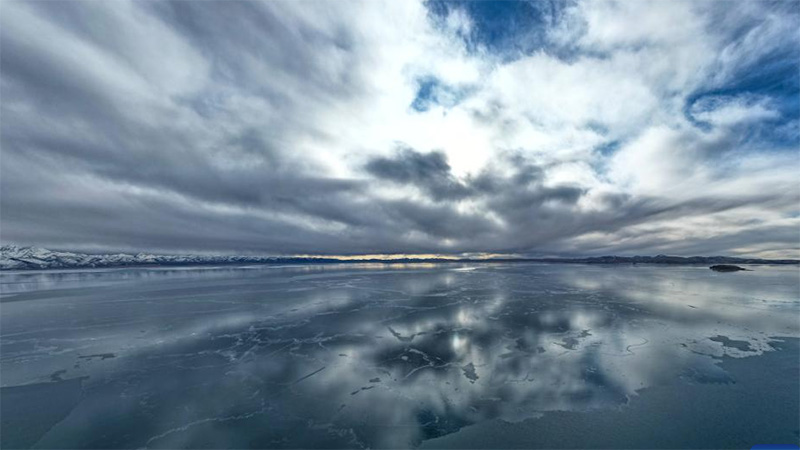Feature: A long-awaited call from Tonga after volcanic eruptions
GUANGZHOU, Jan. 20 (Xinhua) -- Four days after the volcanic eruptions in Tonga, Li Manni (not her real name) finally received a call from the South Pacific island country, telling her that her husband, Zhu Jianxiong, was safe and sound.
Li and Zhu met in 2007. Zhu shipped Chinese products, such as daily necessities, electrical appliances, and toys, to Tonga and sold them to locals.
Zhu's most recent trip to Tonga was in November 2019, and he planned to fly back to China in January 2020. However, the outbreak of COVID-19 postponed his flight to March, then April, and then June.
"With the pandemic intensifying globally, Tonga implemented strict border control measures. My husband has not returned to China ever since. It's more than two years now," she said.
Zhu's business was unable to continue because of transportation disruptions. Instead, he earned his living by repairing computers and mobile phones for local Chinese.
Despite the time difference between China and Tonga, whenever she sent a message, her husband responded instantly. Sometimes even at 2 or 3 a.m., Zhu was still found working.
Li later learned that Zhu had to work more than 10 hours a day so that he could earn more money for the family. Her husband sent money home every two to three months.
In early January, Zhu sent Li three short videos, showing three small volcanoes erupting across the sea.
On Jan. 15, Li received a voice message from her husband: "Volcano erupts, tsunami is coming, I am going to the airport right now." And followed by a money transfer of 3,355 yuan (about 527 U.S. dollars).
"I think this is all the money in his WeChat wallet. What he cares about most is whether I have enough money to spend in China," Li said.
Li lost contact with her husband afterward. She was so anxious that she kept watching the news, praying that Zhu could get to the airport before the tsunami came.
She said most buildings are two-story bungalows, and the airport is the highest place there to escape the tsunami. She was worried that there would be no chance of survival if the whole island was submerged.
"I was heartbroken. I didn't know how to express it. I was shaking all over," she said.
She called again and again, hoping that she would get through, that some miracle would happen, but there was no answer.
A foreigner answered her eighth call, but just kept saying "Yes." Another foreigner answered her 19th call. She wondered if her husband had died, or if the signal was connected to the wrong line.
For two days and nights, she wept while taking care of their children and doing housework.
"My heart hurt because I was not with him when he was in the most difficult time. If I was there, the two of us would be together. Even if a tsunami came, I would hold his hand, and both of us would face it together."
Just when she was desperate, she received calls from the foreign affairs office of Guangdong Province and Guangzhou City. The staff told her that they would help find Zhu's whereabouts and ask for Zhu's personal information.
Within two hours after she submitted the information, Li received an overseas phone call. At first, Li thought it was a harassing call. The same number called again, and she answered. It was from the Chinese embassy in Tonga.
She was at first suspicious because the whole of Tonga was out of signal. The other end of the line told her that it was a satellite phone and the signal could be interrupted at any time.
In the call, the embassy confirmed that her husband was safe and sound.
"And I was like, really? I didn't believe it at first, but I came to accept the good news soon after. I cried and laughed, and I cried again," she said.
She was told that it was the first satellite call out, and the staffers there didn't even have the chance to call their own families.
"In such a short period of time, it could go from getting information about someone from our home country to finding that person in another country where communications were down, and confirming that he was safe. I was very much touched," Li said.
"I personally feel that China always puts its people's lives and interests first. With my home country's strong backing, I feel protected," she said.
Photos
Related Stories
Copyright © 2022 People's Daily Online. All Rights Reserved.










